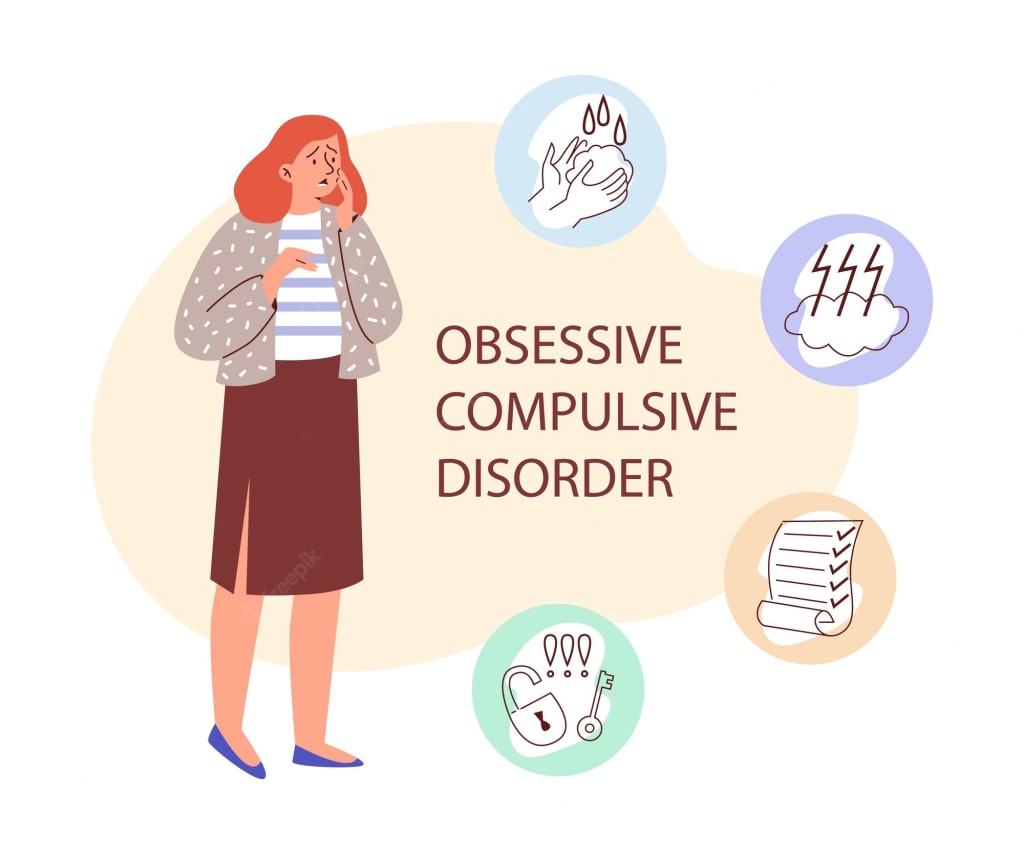What Causes OCD and How to Identify Possible Triggers
What Causes OCD and How to Identify Possible Triggers

Introduction
Obsessive-Compulsive Disorder (OCD) is a chronic mental health condition affecting millions worldwide, including in India. OCD is characterized by recurring thoughts, obsessions, and repetitive behaviors that can significantly disrupt an individual's daily life. While the exact causes of OCD are not fully understood, several factors are believed to contribute to its development. In this article, we will delve into the potential causes of OCD, discuss how to identify possible triggers and highlight the importance of seeking the best doctors for OCD in India to facilitate effective treatment.
Understanding the Causes of OCD
Genetic Factors:
Research suggests that genetics may play a role in the development of OCD. Studies have shown that individuals with a family history of OCD are at a higher risk of developing the disorder. Certain genes are believed to be associated with the regulation of serotonin, a neurotransmitter that impacts mood and anxiety. Altered serotonin function has been linked to OCD, indicating a genetic component.
Neurological Factors:
Brain imaging studies have revealed structural and functional abnormalities in specific brain regions of individuals with OCD. The cortico-striatal-thalamo-cortical (CSTC) circuit, responsible for regulating thoughts and behaviors, appears to be disrupted in OCD patients. Imbalances in neurotransmitters, such as serotonin, dopamine, and glutamate, also contribute to the manifestation of OCD symptoms.
Environmental Factors:
Certain environmental factors can trigger or exacerbate OCD symptoms in individuals who are already predisposed to the disorder. Stressful life events, traumatic experiences, infections, or childhood abuse may increase the likelihood of developing OCD. Additionally, societal and cultural factors, such as excessive cleanliness expectations or religious beliefs emphasizing strict rituals, can influence the development of OCD symptoms.
Identifying Possible Triggers
Obsessions:
OCD often manifests as intrusive, distressing thoughts or obsessions. Common obsessions include fears of contamination, aggressive thoughts, or a need for symmetry and order. Identifying recurring and intrusive thoughts that create anxiety is crucial in recognizing possible OCD triggers.
Compulsions:
Compulsions are repetitive behaviors or mental acts that individuals with OCD engage in to alleviate anxiety caused by their obsessions. These behaviors may involve excessive hand washing, checking locks repeatedly, counting, or seeking reassurance. Identifying repetitive actions or rituals that individuals feel compelled to perform can help identify potential triggers.
Triggers in the Environment:
Environmental triggers can vary widely among individuals with OCD. Certain objects, situations, or specific places can evoke obsessive thoughts or compulsive behaviors. For example, a person with contamination obsessions may be triggered by public restrooms or doorknobs. Recognizing these triggers can aid in managing and avoiding situations that worsen symptoms.
Seeking the Best Doctors for OCD in India
When it comes to OCD treatment, seeking professional help is essential. Consulting with a qualified psychiatrist or psychologist who specializes in OCD can provide the necessary guidance and support. Here are some steps to help find the best doctors for OCD in India:
Research and Referrals:
Start by researching reputed mental health professionals who specialize in OCD treatment in India. Seek recommendations from primary care physicians, friends, or family members who have had positive experiences with mental health specialists.
Credentials and Experience:
Ensure the doctor you choose is a licensed mental health professional with expertise in OCD. Look for certifications, qualifications, and memberships in professional organizations related to OCD and anxiety disorders. Experience in treating OCD patients is crucial for an accurate diagnosis and effective treatment.
Treatment Approaches:
Consider doctors who offer evidence-based treatment approaches for OCD, such as Cognitive Behavioral Therapy (CBT) and Exposure and Response Prevention (ERP). These therapies have been shown to be highly effective in managing OCD symptoms. Medication management, when necessary, should also be a part of their treatment plan.
Patient Reviews and Testimonials:
Read patient reviews and testimonials to gauge the doctor's reputation and their success in treating OCD patients. Positive feedback from previous patients can provide valuable insights into the doctor's approach, empathy, and effectiveness.
Accessibility and Personal Compatibility:
Consider factors such as the doctor's location, availability, and whether you feel comfortable discussing your concerns with them. A strong doctor-patient relationship is vital for successful treatment.
Conclusion
While the exact causes of OCD remain complex and multifaceted, understanding the potential factors that contribute to its development is crucial for effective treatment. Identifying possible triggers, whether genetic, neurological, or environmental, can help individuals manage their symptoms and seek appropriate support. In India, it is essential to connect with the best doctors for OCD who possess the expertise, experience, and evidence-based treatment approaches required to address this challenging disorder. Remember, seeking professional help is the first step towards managing OCD and improving overall quality of life.





Comments
There are no comments for this story
Be the first to respond and start the conversation.